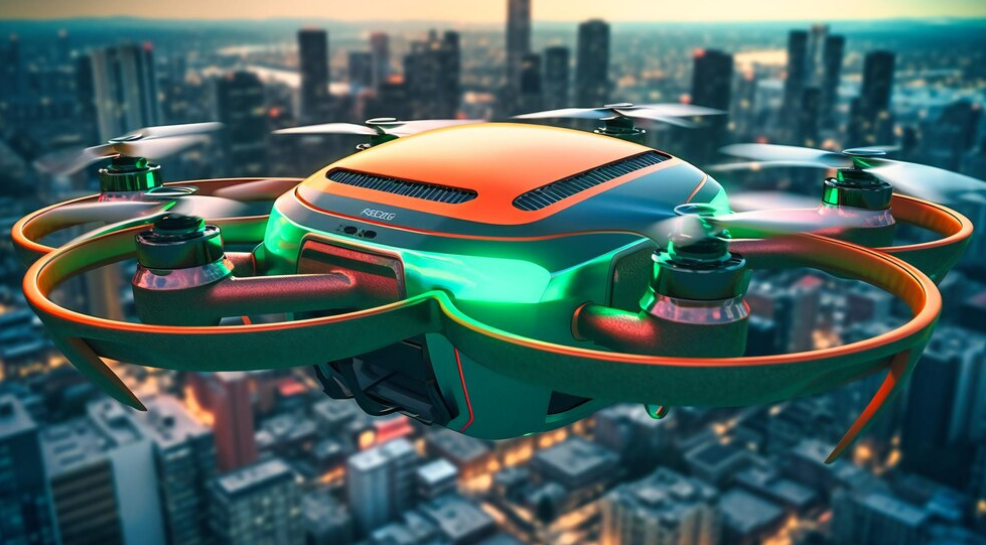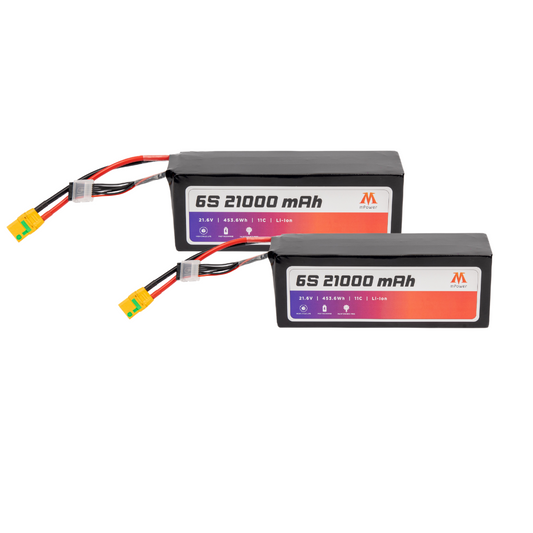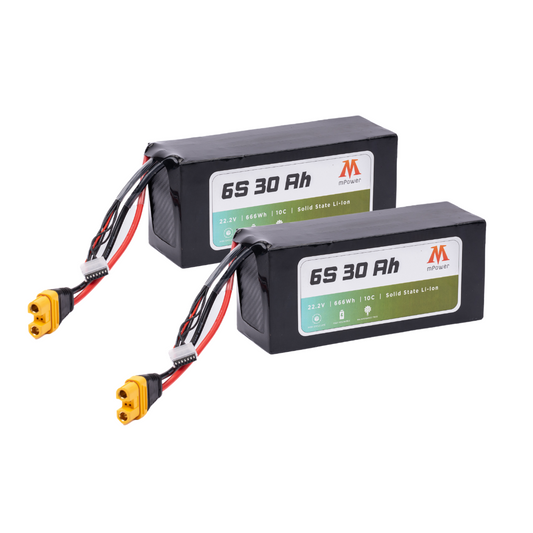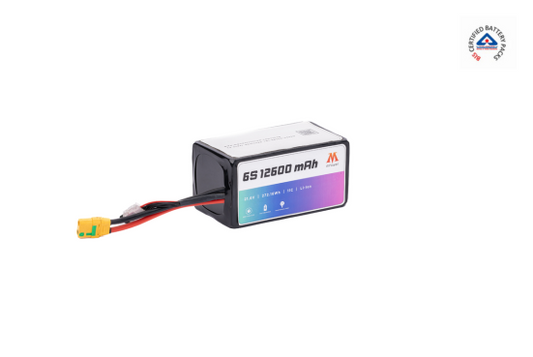
Drone technology is revolutionizing almost every industry whether it is mapping, farming, medicine, or delivery. Similarly, AI has also disrupted every industry and streamlined various works. AI has removed the involvement of humans in the first place. The new-age drone technology has started incorporating AI in drone technology to capture vast amounts of data and analyze them to make data-driven decisions.
For instance, recently in an Indian television show, Shark Tank, a company demonstrated their AI-enabled drone technology that makes intelligent decisions. This drone technology can fly without any control and can also successfully land. The drone can be controlled remotely, and the drone can automatically map the area.
Additionally, this is the beginning of AI-enabled drones, and they can be invaluable in the future in various industries. This will enhance productivity and allow us to operate in dangerous situations.
What Are the Key Components of Drone Technology?
Lithium Ion Drone Battery
The drone is powered by a Lithium ion drone battery that is rechargeable. This offers the optimal electrical energy that is necessary to take a flight. mPower is a drone battery provider that offers customized Lithium ion drone batteries to manufacturers. This ensures that your drone will get the intended electrical energy to make a flight.
Sensors
Modern-day drone technology is equipped with sensors that will gather data from surrounding and internal states. In the case of AI-powered drone technology, sensors are pivotal as they will gather data, analyze them in real time, and make informed decisions.
Communication Systems
It includes communication systems that receive commands from the ground station and act on them.
Flight Controller
This is the brain of the drone consisting of a microprocessor that manages the drone flight function. It is responsible for receiving the input from the sensor and translating the command for drone position, altitude, and orientation.
What is the Application of AI-powered Drones?
Agriculture and Precision Farming
Drones with AI algorithms and multispectral sensors can scan large fields and detect areas that have pests, diseases, or nutrient deficits. This minimizes waste and maximizes yields by enabling the controlled application of fertilizers and insecticides.
Farmers can design precise irrigation schedules by using AI to assess data on soil moisture and weather trends. In addition to saving water, this guarantees crops get the right quantity of moisture. Drones with AI capabilities can be utilized for automated sowing and planting, which increases accuracy and efficiency over conventional techniques.
Surveillance and Security
Sensitive area perimeters can be automatically patrolled by drones that use artificial intelligence (AI) to detect anomalies and objects. In addition to increasing security, this frees up human guards for other duties.
Drones with AI capabilities can be used to track traffic patterns and spot bottlenecks. By using this data, commutes can be made better, and traffic management tactics can be optimized.
Drones equipped with AI object detection and thermal imaging can look for people who go missing in isolated or disaster-prone places, greatly increasing the likelihood of discovering survivors.
Logistics and Delivery
Drones with AI capabilities are being investigated for last-mile delivery in cities, which might drastically improve package delivery efficiency and speed. By automating inventory checks in warehouses, drones can lower human error and enhance stock management.
Disaster Management and Search & Rescue
Drones can swiftly evaluate the extent of infrastructure damage and pinpoint places that need immediate repair in the wake of a natural disaster. Drones with thermal imaging and AI object detection can search for survivors in isolated locations, wreckage, or collapsed structures, greatly speeding up reaction times. Drones can transport basic supplies, such as food, water, and medication, to isolated or difficult-to-reach crisis zones.
Environmental Monitoring
Artificial intelligence-equipped drones can search large tracts of forest and identify wildfires early on. This facilitates quicker response and lessens the extent of fire damage. AI can examine data gathered by drones to monitor the quality of the air and water. Additionally, it can allow the monitoring of wildlife populations.
What Are the Challenges and Ethical Considerations of AI Integration?
Safety and Security
AI-powered drones with sophisticated navigation and control systems are vulnerable to hacking. Malicious actors could potentially take control of drones and cause harm. Robust cybersecurity measures are essential to protect these systems.
AI systems are not foolproof and can malfunction. Drones with faulty AI could pose a safety risk, and rigorous testing and fail-safe mechanisms are needed.
Ethical Use of AI in Drones
The use of AI for autonomous decision-making in weaponized drones raises serious ethical concerns. Who decides the target? What safeguards are in place to prevent civilian casualties? International agreements and regulations are needed to address the ethical implications of autonomous weapons.
AI algorithms can inherit biases from the data they are trained on. This could lead to discriminatory applications of AI-powered drones, such as biased surveillance or unfair profiling. Developers need to ensure fairness and transparency in AI algorithms used for drones.
Regulatory and Legal Challenges
Integrating a large number of autonomous drones into existing airspace is a complex challenge. Regulations need to be developed to ensure safe and responsible drone operation, preventing collisions with manned aircraft.
In the case of accidents involving AI-powered drones, determining liability can be complex. Clear legal frameworks are needed to establish who is responsible – the manufacturer, the operator, or the AI programming.
The Bottom Line!
AI is not just the future, but AI is here, disrupting the various industries. mPower understands this very well. We offer a competitive drone battery price to drone manufacturers. This allows manufacturers to get the desired power to compute the vast amount of data. Additionally, our Lithium ion drone battery can be customized based on your needs so you can experiment with AI incorporation in drone technology.












